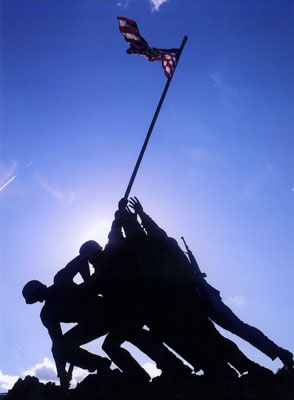All Nonfiction
- Bullying
- Books
- Academic
- Author Interviews
- Celebrity interviews
- College Articles
- College Essays
- Educator of the Year
- Heroes
- Interviews
- Memoir
- Personal Experience
- Sports
- Travel & Culture
All Opinions
- Bullying
- Current Events / Politics
- Discrimination
- Drugs / Alcohol / Smoking
- Entertainment / Celebrities
- Environment
- Love / Relationships
- Movies / Music / TV
- Pop Culture / Trends
- School / College
- Social Issues / Civics
- Spirituality / Religion
- Sports / Hobbies
All Hot Topics
- Bullying
- Community Service
- Environment
- Health
- Letters to the Editor
- Pride & Prejudice
- What Matters
- Back
Summer Guide
- Program Links
- Program Reviews
- Back
College Guide
- College Links
- College Reviews
- College Essays
- College Articles
- Back
Should Wearing Hijab be Banned in Public Places?
Freedom of religion is a liberty cherished by all. Creating restrictions on harmless religious wear or accessories will lead to taking away that liberty. Would banning the hijab be the beginning of our religious freedom slipping away? Another important question to consider is why is there a new emphasis on the Muslim hijab when it is perfectly acceptable for an Orthodox Jew or a Christian nun to cover her hair? One may feel that the emphasis on hijab is a way to control Muslims by non-Muslim governments and institutions. Muslim women believe that hijab is obligatory by God and that it does not restrict their freedom, though non-Muslims who are ignorant to Islamic teachings state that Islam and Muslim men are oppressing their women and denying them their rights.
Islam makes it obligatory for woman to wear hijab in order to maintain their modesty. Hijab refers to not only the headscarf that covers the hair, but also the covering of the body with exception to the face, hands, and feet when women are in the presence of men who are not related or married to her. The concept of hijab is addressed in the Quran, the Muslim holy text, and is elaborated in the teachings of the prophet Mohammad. “The Muslim woman wears hijaab on the basis of her belief, that it is a command from Allah, revealed to protect the Muslim woman, to make her character distinct, and to keep her away from the slippery slope of immortality and error.” Says Muhammad Ali Al-Hashimi an Islamic scholar. There are approximately 1.2 to 1.6 billion Muslims in the world, however not all Muslim women choose to wear hijab and many Muslim families do not force their wife or daughters to wear it.
Muslim women that choose to wear hijab feel as if hijab gives them a sense of empowerment and identity, which makes them feel good about themselves. It gives them a sense of empowerment that comes from doing what they feel is right to strengthen their personal connection to God. On the surface, it is obvious that a woman in hijab is a Muslim, but her personal identity reaches beyond what she wears. She has a sense of belonging to something that is greater than herself in terms of her beliefs and that of her community. Women who wear hijab are called muhajabat. Muhajabat explain that they make a choice to wear hijab since it gives them freedom from physical emphasis that may attract a man’s attention in a sexual way. Muslim women have the freedom to dress any way they like in front of other women and selected men within their families. They also feel as if hijab allows them to focus on their spiritual, intellectual, and professional development, rather than their appearance.
According to John L. Esposito professor of International Affairs and Islamic Studies at Georgetown University, “Women who wear the scarf complain that, instead of asking what the hijab means to them, people simply assume that veiled women are oppressed. This assumption, they say, oppresses Muslim women more than any manner of dress ever could.” Many non-Muslims believe that hijab is a symbol of female oppression imposed on Muslim women by extremist Muslim men. Female activists find hijab to be women’s inferior status in Islam and are against it. People find hijab to be linked with oppression and backwardness as it disables women to display their body and hair to the general public. People also find hijab to be insulting to men, as it implies that women believe that men have no control over their sexual impulses. What they do not consider is that hijab is also used to prevent a woman from intentionally attracting the attention of the opposite sex. It is not only used to protect the woman, but also the man from being tempted in any way.
It is surprising how some societies believe that all other cultures and belief systems must follow and fit into their own. The wearing of a veil over the head to cover the hair and other parts of the body serves both cultural and practical purposes. Similarly to the orthodox Jewish women’s dress or the nun’s habit, which also consists of covering the hair and wearing loose unrevealing clothing. Banning hijab is depriving Muslim’s of their religious freedom, even though hijab is similar to other religious dress and those are not being banned. This specific issue portrays the increasing intolerance of Islam.

Similar Articles
JOIN THE DISCUSSION
This article has 1 comment.
